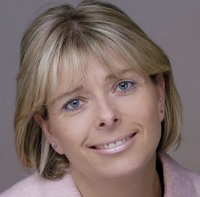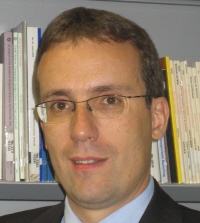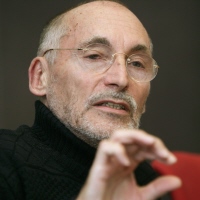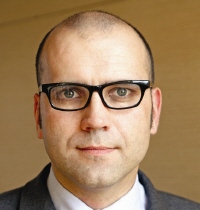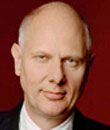For programme download click on the icon ![]()
�
Pre-Conference:
Practical Approaches
�
Wednesday, November 22, 2006�
![]()
|
13.00h |
�Georges T. Roos: Welcome | � |
|
New Explorative Approaches Chair: Prof. John S. Ratcliffe and Dr. Wendy L. Schultz | ||
| 13.05h |
|
<< back |
|
Dr. Wendy Schultz will briefly review state of the art digital and networked solutions for environmental (horizon) scanning, and consider what the shift from print/analogue to multimedia/digital means in creating automated futures research tools, and immersive, participatory futures environments. She will finish by describing a new project for open-source, graphically rich scenario building. | ||
| 13.15h |
|
<< back |
| Why is it that something so powerful, so important and so eminently sensible as �futures� remains so peripheral and transient to strategic policy formulation and operational decision-making? Is it because the methods used are too complex, too costly or too unconvincing? Or are we simply too incompetent in their application? This opening utterance generally poses a few questions around the purposes, participants, processes and practices of futures methods. In particular it explores such dichotomies as: � Insight or Foresight? � Learning or Planning? � Big Boom or Constant Evolution? � Central or Peripheral? � Imagination or Conformation? � Therefore hold to the things which are reliable. Look to simplicity; embrace purity. Lessen the self: diminish desire.� [Tao Te Ching] | ||
|
8 Workshops: Innovative Futuring Tools and Techniques | ||
|
13.30h |
Introduction: Workshops 1-4 Hans Bandhold, Prof. Markku Wilenius, Stefan Holtel, Prof. Barbara Adam |
� |
|
13.45h |
Introduction: Workshops 5-8 Dr. Arnim Wiek and Dr. Michael Siegrist, Dr. Pierre-Alain Schieb, Dr. Kerstin Cuhls, Thierry Kneissler and Monika Herrmann |
� |
| 14.00h |
Workshop 1 |
<< back |
|
This Future Workshop consists of two integrated parts: A presentation of the "next generation", the MeWe Generation born in the 1980s, and the possible consequences for consumer industry, employers, politics and civil society. It will be based on surveys and studies on values conducted by Kairos Future during recent years. | ||
| 14.00h |
Workshop 2 Creative Knowledge Capital as the Future Core Asset for Organisations |
<< back |
|
Creative Knowledge Capital is a new concept that has been recently developed in Finland Futures Research Centre, as a result of extensive research and development project with six major Finnish companies. The still ongoing project focuses on the development of foresight methods for mastering innovation and leadership processes at company level. Our results show that competitiveness requires a far deeper understanding of organisation-based innovativeness than that which is recognised today.In the workshop, we shall explore our concept and findings in discussive and hands-on spirit. | ||
| 14.00h |
Workshop 3 |
<< back |
| Technologies drive communication services: bandwidth, image resolution or storage often describe the �attitude� of a new service. Unfortunately, business models don�t take up: customers don�t care about technology, they want added value. Web 2.0 creates a new paradigm (discovered just by chance, not actually by rationale). It basically is not about technology, but about general design patterns. Web 2.0 is poised to launch an unprecedented class of new communication services in the future. Yet still missing is a framework explaining the type of communication happening upon Web 2.0 platforms. Vodafone R&D has developed a communication model, which establishes this framework. Analyzing communication in Web 2.0 applications serves as a promising way to understand its success � and even presents an opportunity to systematically exploit more Web 2.0 opportunities. | ||
| 14.00h |
Workshop 4 |
<< back |
| The workshop has a methodological focus and explores the often unacknowledged assumptions that we bring to our work. It is divided into three parts: Barbara Adam will provide a short introduction that places contemporary approaches to the future in a historical context. Following the introduction participants will be working in small groups to explore some of the implicit assumptions that guide their work as futurists, drawing on their own field of expertise to establish the relationship between action, knowledge and ethics. The key insights arising from the small groups will be shared and discussed with all the participants in the last part of this workshop. | ||
| Coffee break | ||
| 16.00h | Workshop 5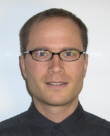 Foresight of People's Risk Perception � the Example of Nanotechnology |
<< back |
|
Public perception plays an important role in the acceptance of technological innovation. There are various studies on the risk perception of future technological innovations that provide valuable information for entrepreneurs, regulators and other decision-makers. However, these studies rely on the divergence between future technological development on the one hand and present preferences | ||
| 16.00h | Workshop 6 Bioeconomy 2030: Designing a Policy Agenda |
<< back |
| The bioeconomy, a new concept, covers a broad range of economic activities, all benefiting from discoveries, and related products and services arising out of the biosciences. The project will assess how pervasive biotechnological applications are likely to become, prospects for further development over the next two to three decades, potential impact on the economy and society, and the policy agenda needed to promote and diffuse this new wave of innovations in a way that is consistent with broader socioeconomic goals. | ||
| 16.00h |
Workshop 7 |
<< back |
| National foresight processes in Germany started at the beginning of the 1990s and developed successively. From a Key Technologies approach with a limited number of participants and Delphi surveys with thousands of participants to more workshop-oriented concepts in Futur. There is a lot of knowledge available about different tools and their combinations. The workshop will go through some of the approaches. A lot of lessons about applicabilities, pro�s and con�s, successes and failures can be learned. | ||
| 16.00h |
Workshop 8
|
<< back |
|
PostFinance is one of the largest financial services providers in Switzerland with over 2 million customers and a total asset of CHF 47 billion. Innovation is a key element in its ambitious growth strategy. PostFinance was awarded �Best Innovator 2006� by AT Kearney and Bilanz. Innovation grows out of every employee�s inspiration in every business unit at PostFinance. The Future Screening initiative of the Corporate Development department is an important instrument to support innovations. It includes measures like planning future research projects, coordinating a network of Future Agents or emphasizing perspectives of the future in the strategic decision making of the executive board. At the European Futurists Conference Lucerne a futurology-based concept of strategic management will be presented and elaborated. This concept is based on innovative ability as a critical success factor provided by systematical exploration of possible future | ||
|
Keynote Speech: Can Science Predict Human Behavior? | ||
| 17.30h |  The Rise and Fall of Globalisation: an Example of Socionomics in Action |
<< back |
| This talk presents an exposition of the central hypothesis of Socionomics that it is beliefs and feelings that create a collective social mood, and that mood in turn generates collective social behaviors on all timescales. This theory of social causation is then employed to show that the currently fashionable belief that the world is getting "flat" in Thomas Friedman's phrase is just plain wrong. "Globalization" in the sense of Friedman and the media is deader than a dodo bird. All that remains is to sign the death certificate. | ||
|
�18.15����� |
Closing of the Pre-Conference |
� |
|
�20.00 |
Futurists Reception Hotel Schweizerhof� | � |
�
�
Future Seminars
Wednesday, November 22, 2006
![]()
|
Future Seminars | ||
| 08.30h - 12.30h |
|
<< back |
| Learn how to design and manage a fully integrated process for foresight and future management with the Eltville Model which has proved its quality and practicability in hundreds of projects. You will get familiar with a process model and a thinking model which serves as a mental map that covers the whole field of foresight and future management. Visit www.FutureManagementGroup.com/efcl Who should attend: Apply for invitation at www.FutureManagementGroup.com/efcl | ||
| 14.00h - 17.30h |
Kairos Future AB (Dr. Mats Lindgren / Hans Bandhold) |
<< back |
| CANCELLED! | ||
| 14.00h - 17.30h |
Shaping Tomorrow (Dr. Michael Jackson) / ROOS B�ro f�r kulturelle Innovation |
<< back |
| CANCELLED! | ||
| 16.00h - 17.00h |
|
<< back |
| Paul Gardien, Philips Design, will give some insights into future thinking and practice at Philips: How is the Dutch company Philips tracking future trends aimed at developing products, services and systems that people really want - not today, but tomorrow, in about 10 years from now? In Philips Design researchers, from the field of futures, social and human studies, are researching socio-cultural changes, emerging values, needs and behaviours of people. Paul will show how this information is used at Philips to drive future innovation and growth - both globally and locally - and how new concepts are developed. | ||
�
For programme download click on the icon ![]()
�
Main Conference:
Critical Insights & Emerging Business Models
�
Thursday, November 23, 2006
![]()
|
�10.00h�� |
Georges T. Roos: Opening of 2nd EUROPEAN FUTURISTS CONFERENCE |
� |
|
�Chair: Rohit Talwar | ||
|
�10.10h |
Rohit Talwar Critical Insights & Emerging Business Models - Conference Targets and Goals |
� |
| Keynotes: New Uncertainties, New Paradoxes | ||
| 10.20h |
� � |
<< back |
| The 21st century will be like no other � humankind will need to think of the consequences of its acts beyond a single generation, even beyond the coming century. What are the global challenges we must address and what role can futurists play? What is the ethics of futurism and how can we make better future-oriented decisions? | ||
| 11.00h | << back | |
|
Penny Power will talk about the future of networks and how this will impact individuals, culture and businesses, large and small. Penny is the | ||
| 11.40h | << back | |
|
Forecasts for long-run economic growth are an important input into decisions in companies, governments and financial markets. However, there is a real scarcity of substantiated forecasts. Deutsche Bank Research has developed a unique framework that combines quantitative and qualitative elements: Formel-G. The model can be used as a tool to think about long-run growth and to derive forecasts for GDP growth until 2020. Asian economies are set to be the growth stars until 2020 based on favourable demographics, strong rises in human capital and a further opening to international trade. | ||
|
�12.20 |
Lunch Break� |
� |
|
Best practice: Mapping the Future | ||
| 14.00h |
|
<< back |
|
The future, and the future and innovation, in big companies, is too often about more of the same, despite living in an age that calls out for more appropriate and radical solutions. Part of the problem lies in the strong industrial heritage of an over "engineered" approach to innovation and risk management: a desire to impose a business "straitjacket" too early in the innovation process and to minimize the risks, stifles the truely new. An age that needs radical innovation needs a more radical approach to the process of innovation itself. Philips Design proposes a more flexible, inclusive, creative and sustainable approach to innovation and growth. | ||
| 14.40h | Getting Things Done - From Future Thinking to the Strategic Planning Process |
<< back |
|
In 1998 Mibelle, the largest cosmetics manufacturer in small Switzerland, had more questions than answers about the future and saw more clouds than sun on the horizon. In a systematic process these questions were adressed and integrated into the strategic planning within Mibelle which led to 7 years of dynamic growth. It is shown how Mibelle "got started" and developed and implemented a future management system in 1999 which proved to be successful in the following years. | ||
| 15.20h | The Future is Perseivable - You Only Have to See It |
<< back |
|
Most companies have a lot of information regarding future trends at hand | ||
|
�16.15 |
Coffee Break� |
|
|
�16.50 |
Salon 1 Innovation and Futures Research Chair: Johan Peter Paludan (Advisory Board), Copenhagen Institute for Futures Studies � Salon 4 Global Future |
� |
|
18.15 |
End of 1st Day |
� |
|
20.00� |
Future Dinner Hotel Schweizerhof� | � |
|
Dinner Speech: Hot topic | ||
| 21.00h | 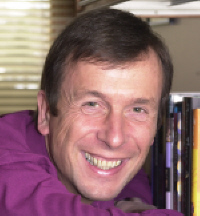 Upgrading Humans � Mental Enhancements via Implants� |
<< back |
|
In this presentation a look will be taken at how the use of implant technology is rapidly diminishing the effects of certain neural illnesses and distinctly increasing the range of abilities of those affected. An indication will be given of a number of problem areas in which such technology has already had a profound effect, a key element being the need for a clear interface linking the human brain directly with a computer. The main thrust will be an overview of Kevin's own research which has led to him receiving a neural implant which linked his nervous system bi-directionally with the internet. | ||
�
�
Friday, November 24, 2006
![]()
| Chair: Pero Micic | ||
|
9.00h |
�Pero Micic: Introduction of 2nd Day |
� |
|
Case Studies: New Business Models and Social Practices | ||
| 09.10h |
|
<< back |
| The talk is based on the Global Technology Outlook 2006 (GTO) of IBM Research, an annually updated vision of the future of IT. Although limiters in chip performance are visible, the technology progress will continue and confirm the 'singularity' in cultural history. Progress on the low end will lead to the proliferation of sensors and, functionally, to eventdriven systems which became active and will extend globally, from finance systems and video surveillance systems to multi-user games (MMORPG's). Software is going through rapid evolution at all levels - from foundation, enterprise services to "Web 2.0": Mainly driven by 'community effects' such as Eclipse.org or Wiki's, a new level of flexibility is developing. And, last not least, the dematerialization and commodization of parts of IT lead to an emphasis on social and human aspects of IT and support of people by IT-services and IT develop to a key issue. | ||
| 9.45h | << back | |
|
As internet technologies are maturing and adoption levels are now in the majority, the landscape of innovation is changing. We are moving from a world of long-term R&D that was primarily located in research labs and academia, to a vast distributed network of �lead-users�, who innovate via collaborative social networks. Matt Locke will talk about how the BBC is responding to this new innovation landscape, and describe various pilot projects including Backstage and Innovation Labs. | ||
|
10.20h |
Coffee Break� | � |
| 10.50h |
Markus Merz The OScar Project - Reinvent Mobility |
<< back |
| It is the goal of the OScar Project to develop a car according to Open Source principles. In the maintainer�s opinion, a car is not a vehicle full of high-tech gadgets. Instead, the OScar Team is looking for a simple and functional concept to spread mobility. Form follows function. Apart from that, OScar is not just a car. It is about new ways of mobility and the spreading of the Open Source idea in the real (physical) world. On the website, you will find a great community of developers and drivers who want to invent mobility new and together. The project started in 1999. In December 2005, it reached release 0.2. Starting in 2006, everyone is welcome to participate. | ||
| 11.25 |
Matthias Horx The Art and Misery of Prediction |
<< back |
|
Futurism is surrounded by bizarre misunderstandings and wild expectations. While a lot of futurists today deny their ability to predict, a | ||
| Keynote Speech: Global Outlook | ||
| 12.00h | << back | |
| The Copenhagen Consensus make us prioritize our spending. It essentially asks: �If you had $50 billion to do good, what would you do first?� This approach has been used for world priorities with Nobel Laureates and UN ambassadors, and we�re working to set priorities for Latin America and the EU environment. To make priorities we need to value changes in long-term projections � and this is where economists need the input from futurists. | ||
|
�12.40h� |
Pero Micic: Conclusions | � |
|
�12.55h |
Georges T. Roos: Closing | � |
|
�13.00h |
Farewell | � |
�
For programme download click on the icon ![]()
�






